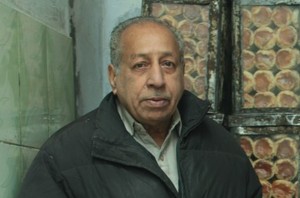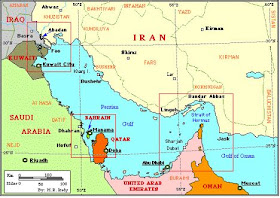Sohrab Ahmari: Why This Catholic Loves the Jews
For starters, it was mainly Jewish writers who dispelled the dangerous Marxist illusions of my youth and ushered me to political maturity. Were it not for Leon Kass, Arthur Koestler, Irving Kristol, and Leo Strauss, to name but a few of them, I probably would have continued to wallow in the lethal “idealism” of the very hard left. In Natan Sharansky’s gulag memoir, Fear No Evil, I discovered the link between faith in the God of the Bible and freedom, both political freedom and the more important kind: spiritual freedom. The words that sustained Sharansky through his ordeal belonged to Rabbi Nachman of Bratslav: “The entire world is a narrow bridge, and the important point is not to be afraid.”Kevin D. Williamson: Green Floyd: Roger Waters and the Great Green Chevron Scam
Reading those lines while picturing Sharansky in his punishment cell sent shivers of understanding down my spine. A part of me knew that Nachman was right, even though I would have insisted that I was an unbeliever at the time. And that intuition raised an uncomfortable thought: I could only cross the bridge fearlessly and avoid the abyss below if there was Someone at the other end waiting for me—a metaphysical direction and endpoint, a loving Almighty who thunders: “Be not afraid.”
I picked up that interior confidence—that no force on earth could shake me if I feared Almighty God, that no regime could compel me to abide evil if I hewed to God’s ways—from Jewish writers, some of whom weren’t even traditional believers. Initially, I was reluctant to articulate this newfound confidence in the first person, lest my mostly secular friends sneer at me. But eventually, I professed faith in the one God.
When I did, I professed faith in the Christian God—the God of Abraham, Isaac, and Jacob, who, I believe, entered human history a little more than 2,000 years ago and made of himself the bridge across that terrifying abyss that Rabbi Nachman had written about. I concluded that the bridge is cruciform, in other words. And that, of course, is where Jews and Christians part theological ways. But in so concluding, my mind never gave in to the classical anti-Semitism that historically disfigured relations between Christians and Jews.
Rather, my attitude was one of gratitude. Gratitude for the Jewish genius of the Hebrew Bible. Gratitude for the Jewish landscape of human salvation and the Jewish men and women that peopled it, not least Jesus of Nazareth and his blessed mother. Gratitude for Jews as Christianity’s elder brothers and sisters, who nurtured faith in the true God like a “well-cultivated olive tree onto which have been grafted the wild shoots, the Gentiles,” as the Vatican II declaration Nostra Aetate has it. Gratitude for the depths of Jewish ethics, for the resounding Jewish “No” to pagan abominations and emperor-worship, a “No” that echoes to this day.
Thanks to Judaism, the Jewish tradition, and Jewish intellectuals, I’m a Christian believer and not a modern pagan. How could I then not love the Jewish people?
The slow unraveling of the case against Chevron has been eye-opening, not least for the glimpse it offers into the way money moves through the progressive activist world.Pens to Wear 'Stronger Than Hate' Patches Tonight Against the Islanders
The background: Chevron was accused of inflicting horrible suffering on the people of Ecuador through mismanagement of drilling operations there, contaminating the groundwater and exposing thousands of people, mostly in nearby indigenous communities, to a stew of toxic sludge. The most obvious problem with the case was that Chevron had never drilled for oil in Ecuador; it acquired Texaco, which had done so years before, in partnership with the Ecuadoran state oil company. At the conclusion of its operations, Texaco received a formal certification from the government of Ecuador that it had cleaned up after itself (at a cost of about $40 million) and that it was released from further liability for the operations, which were continued by the state oil company. Like many state oil companies, Ecuador’s had at times been something less than scrupulous in its observance of environmental standards. Its operations are likely the source of the pollution in Ecuador.
But American lawyer Steven Donziger, an old basketball buddy of Barack Obama’s, managed to obtain a $9.5 billion judgment against Chevron in an Ecuadoran court. Chevron complained that this judgment was the product of corruption, that Donziger et al. had falsified evidence, paid off allegedly neutral experts, bribed judges, and more. Chevron took those complaints to court in the United States and was successful.
Chevron wants the court to find Donziger in contempt because he “willfully and repeatedly has violated the RICO injunction, monetizing and profiting from the fraudulent Ecuadorian judgment by selling, assigning, pledging, transferring, and encumbering interests therein.” The court is considering its claims.
Roger Waters, the rock musician, has denounced Chevron for its “greed,” complaining that it is “disquietingly apparent that the rich and powerful are still much attached to the feathering of their own nests at any cost to others.” Well. Documents submitted to the court show “George R. Waters” taking two equity positions in the case, one for 0.076 percent and one for 0.025 percent, through “Fenwick,” presumably the firm of Mark Fenwick, Rogers’s manager and an heir to the Fenwick department-store chain in the United Kingdom. That would come to roughly $9.6 million of a $9.5 billion judgment. You could feather a lot of nests with that. (I was unable to contact Waters or Fenwick for comment. Rock stars are really hard to get on the phone.) If taking in a few million dollars via an investment in extortion and bribery is not greed, then what is?
Pittsburgh Penguins players will wear special "Stronger Than Hate" patches on their jerseys for tonight's game against the New York Islanders at PPG Paints Arena (7 p.m.).
The patches - and the accompanying jersey auction - are part of the organization's effort to support victims and families of Saturday's tragic shooting at the Tree of Life Synagogue in Squirrel Hill.
Each player will sign his jersey after the game, and the jerseys will be available for auction at treeoflife.givesmart.com.
All proceeds from the jersey auction and the Penguins other fundraising efforts, including tonight's 50/50 Raffle, will benefit the Jewish Federation of Greater Pittsburgh and a fund established by the City of Pittsburgh Department of Safety to benefit police officers wounded during the attack.
The jersey auction will start at 11 a.m. today and continue until November 13 at 12 p.m.
The Penguins will also conduct a collection of monetary donations at all three entrance gates at tonight's game. Fans may donate online at treeoflife.givesmart.com.
The Penguins Foundation also is donating $50,000 to the Jewish Federation of Greater Pittsburgh and to the officers' fund.























